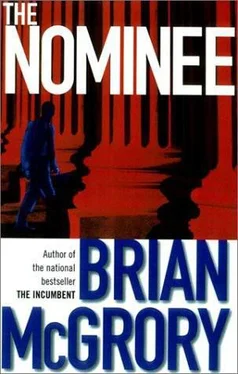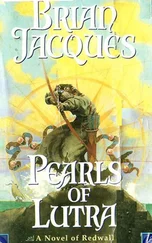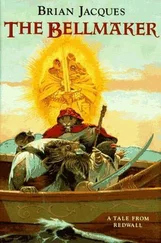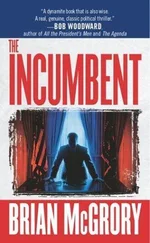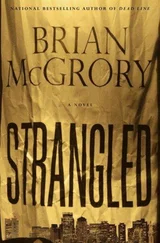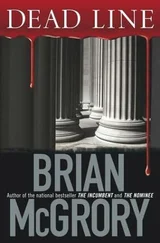There was also a collection of famous front pages framed and hung along the brick-colored walls, many of which included an analysis or story by Fitzgerald — the first moon landing, the assassination of Martin Luther King, the resignation of Richard Nixon.
Finally, I focused on Fitzgerald, who was, in turn, focused on me. “Jack,” he said, “No one should be expected to withstand the pressures of the week you’ve just had, between Paul’s death and the Campbell takeover bid. I hope you’re being fair to yourself and will take some time off and get away soon.”
I shook my head and said, “I can’t even think in those terms yet, Robert. You know that.”
He nodded and asked, “What do you hear in regard to the police investigation?”
I replied, “Nothing terribly encouraging. I don’t get a sense that the cops are any further along today than they were on Monday, do you?”
It was a subtle first gambit, turning it back on him, testing his knowledge of the proceedings. He flashed a hint of being startled, and replied, “I think your information would be as good as mine, no?”
I didn’t respond. It’s an old reporting trick: Make him fill the void with something he might not have otherwise said.
Stunningly, he fell for it, showing me just how far off his game he was on this day. He got an anxious look on his face and added, “I don’t know, Jack. It almost seems strange to think about — Paul dying, that old mariner on the waterfront getting shot to death, someone trying to kill you.”
He lowered his voice as well as his eyes and said, “I don’t know what to think.”
I remained silent another moment to see if I could wring any other emotions or facts out of him, but he only sat staring at the floor. So I said, “This hasn’t exactly given me great faith in Boston’s finest.”
He replied, “Give them time, Jack. Give them time. They’re better than you think, and sometimes, breaks happen on major cases when you least expect them.” Jesus, don’t I know it.
We both fell quiet again for a moment. I heard a siren on the street directly outside and listened to see if it stopped at the front door, but it continued on for destinations unknown. Hopefully Mongillo didn’t get excited at the prospect of a breaking story and follow it.
I took my first sip of port. It was silken on my tongue but raw against my throat. The taste, the sensation, jolted me into action.
I said in a strong, clear voice, “Robert, I have some unfortunate business to address with you.” I swallowed subconsciously and stared him in the eye. His expression didn’t change. He gave not an inch, showed no sign he had any expectation that anything out of the ordinary was coming his way. Outside, day was beginning to turn to night.
“We go back too far for me to beat around the bush, and I respect you too much for that, so I’ll just be straight with you. I have hard evidence and credible allegations that you’ve fabricated information in at least two of your stories, and possibly many more.”
He had been sitting cross-legged in the rocker, gently swaying. When I said what I said, nothing changed, nothing but the expression on his face, which turned from deadly serious — not to make trite use of such a strong phrase in this situation — and sincerely concerned, to a wry smile. It was an expression of understanding, of sympathy. It was, in a word, bizarre.
“Jack, son, people have been gunning for me since I got into this crazy business nearly half a century ago. You know that. Reporters are inherently suspect of success, even — no, especially — amongst ourselves. What are they saying this time?” He brought his arms up over his head, as if he was stretching, which I suppose was better than reaching into his pants for a pistol.
It was an interesting defense that momentarily caught me off guard. I was expecting a tirade, shouted demands to know the identity of his accusers followed by an indignant reminder of all he had done forThe Boston Record in general and me specifically. What I got was a superior attitude that said,Poor Jack, you imbecile. This was going to be even tougher than I first thought.
I said, “It’s the governor, Lance Randolph. He says that back when he was district attorney, you lied about his conviction rate at the start of his first gubernatorial campaign, in an effort to help him. After that, he says, he was stuck with the lies, so he adopted them.”
The smile got broader. For chrissakes, I think I saw his teeth, and no, they weren’t fangs.
He replied, “So our youthful governor, in a desperate attempt to salvage his nomination as U.S. attorney general, blames a reporter for his inability to tell the truth. And Jack, you’re accepting his story at face value?” He shook his head slowly, his gaze never leaving mine. “Son, I thought I knew you better. I thought I trained you better.”
Obviously I had at least partially considered this defense. Obviously I had considered that if you’re Lance Randolph, you’re going to blame anyone even remotely suspect, and you’ll spread that blame as far and wide and deep as it takes to cast any doubt in the minds of the reporters covering the story. But hearing Fitzgerald say it, hearing the words come out of his own mouth in that commonsense way in which he speaks, gave me sudden, though hidden, pause.
It’s an odd sensation, making your accusations in an interview. It’s as if the roof above you has been lifted, the walls around you removed, the trees outside defoliated. You are suddenly, completely, irrevocably exposed, with no reliable idea as to what might come next and nowhere to turn for protection. There was no turning back now, so I said, “That’s not all. Roughly five years ago, in a story about a bungled drug raid in Mattapan in which a reverend and a young cop were killed, you blamed the wrong officer — the dead officer — for leading police to the wrong apartment.”
He continued to meet my stare, squinting a bit as he thought back to the specific story, how he put it together, what he wrote. He said, “If I’m remembering right, Jack, and this was a long time ago by our standards, the police gave me the information, on a not for attribution basis, on which officer committed the fatal error. If you have proof that I had it wrong, I think we owe the public a correction, even these many years later.”
This I had thought of as well, but once again, stated bluntly by Fitzgerald, the evidence sounded so circumspect, or circumstantial. I exhaled slightly and felt myself slouching, fading into the leather chair, giving ground, losing confidence.
I said, “Robert, I’ve also conducted a detailed analysis of two years worth of your human interest stories. And in more than two dozen of them, we’re unable to locate the people you quoted, or even prove that those people ever existed.”
Now he seemed to be getting agitated. His cheeks flashed red and his eyes showed anger. He said, “Which stories? Which people? I don’t sit in the newsroom like all these pseudo-journalists that come in these days, kids whose idea of reporting is making a few telephone calls over to Harvard and MIT, then writing their big think pieces on the direction of our society.
“I’m out there talking to real people on real streets, and often those people move on, live in different places, and maybe a few of them, out of self-preservation, even give me wrong names. Maybe.”
He collected himself a bit, sat back in the rocking chair, folded his hands in his lap, and said, “Jack, you’re better than this. Much better than this. The pressure of the week, of the future, must be getting to you, which is understandable.”
He calmed himself down to the point that he almost seemed to be enjoying this, because he believed the outcome was preordained. But this wasn’t some60 Minutes interview, or a Barbara Walters special on ABC, where attitude was paramount. In the ground game of newspaper reporting what mattered most was the information, not the emotion. So I fell back on an old Fitzgerald lesson: commune. Create sympathy, mutual interest, between the reporter and the subject. Involve him in your needs, in your life, in your story.
Читать дальше
